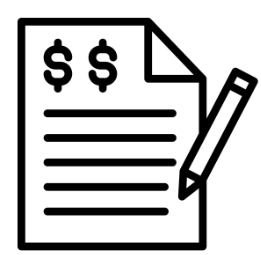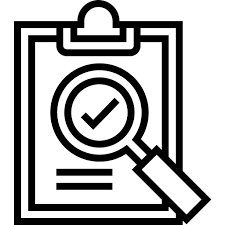Professional Business Writer
These grants have certain criteria to meet:

Learn why top executives and startup entrepreneurs rely on Grand Business Plans time and time again.

Research that is Reliable
Grand Business Plans offers access to the same market research as leading investment banks and venture capital companies, and only uses the most trustworthy data

Completely unique
Clients work directly with a business plan expert with investment banking experience to understand your company’s unique business model.

Professional team
Grand Business Plans’ specialist team is more competent and experienced than any other firm. All of the members have worked in the investment banking industry.

Assistance with a Bank Loan
Grand Business Plans can ensure that you get the best financing terms and the best chance of getting approved by the bank.

Financial Statements Details
When it comes to financial projections, Grand Business Plans only uses the most reliable research. Take advantage of the industry’s best analysts.

Guarantee Customer Satisfaction
Because Grand Business Plans has never had a dissatisfied customer, it offers a money-back guarantee to all of its customers.
Creating a comprehensive business plan involves a series of structured steps to ensure that all critical aspects of the business are well-thought-out and effectively communicated.
Steps Involved
By following these steps, we ensure that your business plan is not only comprehensive and realistic but also compelling and persuasive to potential investors. Our goal is to equip you with a solid plan that will guide your business to success.

Initial Call
Our process begins with an initial call where we discuss your business vision, goals, and challenges. This conversation helps us understand your unique needs and tailor our approach to your specific situation.

Data Collection
We gather all relevant data regarding your industry, market trends, competitors, and financials. This information forms the foundation of your business plan, ensuring it is grounded in real-world insights and accurate projections.

Strategic Planning
Utilizing the collected data, we collaborate with you to develop your business strategy, including market positioning, revenue models, and growth plans. This step involves detailed discussions and iterative feedback to refine and perfect your strategy.

Draft Development
Our team then creates a draft of your business plan. This document includes key sections such as the executive summary, market analysis, organizational structure, product/service offerings, and financial projections.

Review and Refinement
We present the draft to you for review and gather your feedback. This collaborative stage ensures that the business plan accurately reflects your vision and meets your expectations. Any necessary revisions are made to polish the final document.

Finalization
Once the revisions are complete, we finalize the business plan. This investor-ready document is professionally formatted and designed to effectively communicate your business potential to stakeholders.

Presentation Preparation
Additionally, we can help you prepare for presentations to investors or lenders by creating pitch decks, practice sessions, and Q&A coaching. This preparation enables you to confidently present your business plan and secure the funding you need.

Final Delivery
After the first draft, any changes are catered for. once you are happy, we deliver final draft
By following this structured approach, Grand Business Plan ensures that each business plan is tailored to the specific needs of our clients, providing them with a robust foundation to secure funding and achieve their business goals.
Grand Business Plan team produces Enterprise Ireland Business Plans to convince them to get a start-up funded.
If you need a business plan for Priming Grant but don’t know where to start we can help. Our expertise will allow you to accelerate your ideas and turn your business idea into reality and present a convincing proposition to Enterprise Ireland.
Your business plan is going to be 100% compliant with bank needs, such as detailed sections on market research, plans, the company model, fiscal design, etc.
Our MBA business plan advisers have 10+ years of expertise working for globally established consulting companies and working market leaders globally.
All files are totally customized and ready in a user-friendly format without any recourse to either templates or read-made options. such as full-color charts, tables, and graphs.

Place the order
Place your request using our short online order form, which will provides us with the background information we need to begin the project.

Project proposal
Within 3 hours, an expert will contact you to discuss the particulars of your case. We will then prepare a detailed proposal covering our proposed approach, team, relevant experience, credentials, timing and fees.

Final Report
Once we have reviewed your feedback and responded by making the necessary revisions, we will issue the final draft of your report.
Peter Dodd
”I cannot thank Grand Business Plan enough for their superior service and for making the whole process quick and easy. Personable, wholly professional, and highly recommended.”
MALACHY QUINN
I don’t know what else to say. This is something you haven’t seen before. Unique Plan, outstanding support.
Niall Lamont
Grand Business Plans are very professional they know how to deal with clients, they work like a pro. I will come again soon with new project with them.
NEED AN ACCOUNTANT? WE ALSO ASSIST IN THE ACCOUNTING FIELD WITH OUR EXPERT TEAM.
Contact Us
80 Cherry Orchard Industrial Estate Ballyfermot Road, Co. D10NX96, Dublin, Ireland.
Monday – Saturday: 8:30am to 8:00pm
Sunday: Closed
Email: Info@grandbusinessplans.com
Telephone: +353 1 442 8230
Mobile/WhatsApp: +353 85 1477625
Crafting bespoke business plans tailored to your unique vision and goals is our expertise at Grand Business Plan. Whether you're launching a start-up or expanding an existing business, our comprehensive services ensure strategic clarity and investor appeal. Trust our experienced team to guide you through every step of creating a robust business plan that drives success.
MOST POPULAR
SERVICES
Info@grandbusinessplans.com
Phone : +353 1 442 8230
Mobile: +353 85 1 477625
FOLLOW US

Dublin Office
80 Cherry Orchard Industrial Estate Ballyfermot Road, Co. D10NX96, Dublin, Ireland.
Info@grandbusinessplans.com
Phone: +353 1 442 8230
WhatsApp: +353 85 1 477625
© 2024 Grand Business Plan ®All rights Reserved